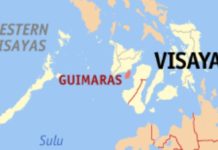
BLAST fishing, an environmentally devastating and illegal practice, continues to plague the waters of northern Iloilo. Despite the comprehensive ban under the Philippine Fisheries Code of 1998, the persistence of this destructive method, primarily conducted by fisherfolk from other provinces, highlights a troubling reality.
The use of explosives in fishing not only leads to the indiscriminate killing of fish but also inflicts irreversible damage to coral reefs, vital to marine ecosystems. These reefs are not just biodiversity hotspots; they are also crucial for the livelihoods of local communities and the overall health of our oceans.
The continuation of blast fishing in Iloilo, despite its illegal status, can be attributed to several factors. The vastness of marine areas, limited resources for enforcement, and the dire poverty in fishing communities compel fishermen to resort to such methods for immediate economic gain. This complex web of issues makes the fight against blast fishing a challenging one.
The provincial government’s resolve to intensify the campaign against illegal fishing by boosting the capability of the Provincial Bantay Dagat Task Force is a commendable step. This initiative, which extends beyond northern Iloilo, reflects a proactive approach to a longstanding problem. However, the challenge remains substantial, given the vast area to be monitored and the nuanced dynamics of local fishing practices.
A holistic approach is key. The emphasis is not just on enforcement but also on conservation, restoration, and education campaigns. The integrated fishery management approach and initiatives like stock enhancement in Banate town are critical in addressing the root causes of illegal fishing practices. By combining strict enforcement with community education and support, there is hope for a sustainable solution.
But the fight against blast fishing is not just a governmental task; it involves the active participation of local communities. Educating fishermen about the long-term consequences of blast fishing and providing them with sustainable alternatives are essential steps. Community engagement can foster a sense of stewardship and responsibility towards the marine environment.







